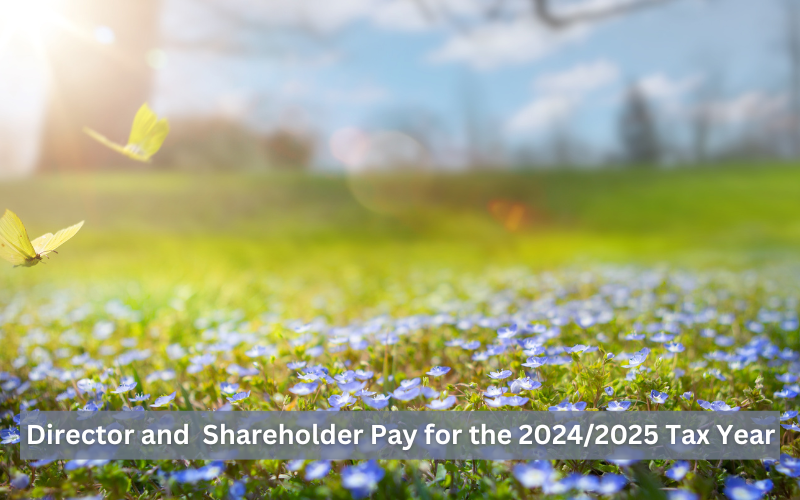
Director and Shareholder Pay for the 2024/25 Tax Year
Accredited Supplier, Sones Accountancy Services advise on the most tax-efficient way to pay yourself as a director and shareholder.
Tax is a complicated subject and often viewed as a little boring too. However, ensuring your 'personal income' is drawn in the most tax-efficient way will give you a bigger bang for your buck! As a director and shareholder of a limited company, you have the flexibility to decide which is the best way to pay yourself.
There are various ways to pay yourself an income from your company. Legally, a limited company is separate from you as the director and shareholder, so you cannot simply keep the profits in the same way that a sole trader can. Instead, you will need to decide how much to pay yourself and in what form the income will be extracted from your company.
What is the most tax efficient way for a director and shareholder to take an income?
Typically, the most tax efficient way for a director and shareholder of a limited company to pay themselves is through a combination of salary and dividends drawn from the profits; but getting the right balance can be quite tricky as each director’s circumstances are different.
There are various factors to consider when deciding on the right combination, such as the company’s profit, the reduction of your personal and company’s tax bill and whether you want to allow for certain state benefits e.g., state pension.
Why a salary?
Taking a salary from your company will mean having you on your company’s payroll, just like your employees. The benefits of taking a salary as part of your income are:
- Build up qualifying years towards your state pension.
- Retain maternity or paternity benefits.
- Making higher personal pension contributions.
- Easier to provide evidence when applying for a mortgage.
- Reduction of the company’s corporation tax as your salary is an allowable business expense.
- Your salary can be taken even if the company makes a loss.
However, there are also drawbacks. Both you and the company must pay National Insurance Contributions (NICs) when your salary reaches a certain amount.
Why take dividends?
A dividend is a share of the company’s profits. Profit is the money the company has left after deducting all business expenses, including taxes. If there is no profit, then no dividends can be paid. If there is more than one shareholder, then the dividends must be split depending on the proportion of shares they hold. You do not have to pay all profits as dividends, the company can retain the profits for a number of years.
Many directors and shareholders of small companies choose to take the majority of their income as a dividend because this is usually more tax efficient. The benefits of taking dividends as part of your income are:
- Dividends are paid at a lower rate of tax than a salary.
- There is no employer or employee NICs payable on dividends.
- You can choose the frequency of the dividend payments.
You can reduce your tax bill significantly by taking most of your income in the form of dividends but there are risks involved with this approach. Dividends can only be paid out of company profits after tax so, again, if the business does not make a profit, then dividends cannot be drawn. If a shareholder accidentally takes a dividend and there is no profit to cover it, then it will be classed as a director’s loan, which must be paid back, potentially with interest.
If you plan to rely on dividends for most of your personal income, ensure you have a good accounting system in place and monitor your profits so you can react to any changes in profit levels if needed.
Optimum director’s salary level for 2024/25
The most tax efficient salary for all directors/shareholders, assuming your personal allowance has not been reduced, is £12,570 this year. There will be no personal tax deducted and only a small amount of employers’ NIC to pay by the company.
If profits allow, you could pay yourself £37,700 at the lower dividend tax rate of 8.75% before you hit the higher rate. This is in addition to the salary of £12,570.
It is important to consult with an accountant when deciding on the best approach to drawing an income from your company. They can provide personalised advice based on your specific circumstances. This will help you to make the right decision in drawing the most tax efficient income from your company.
